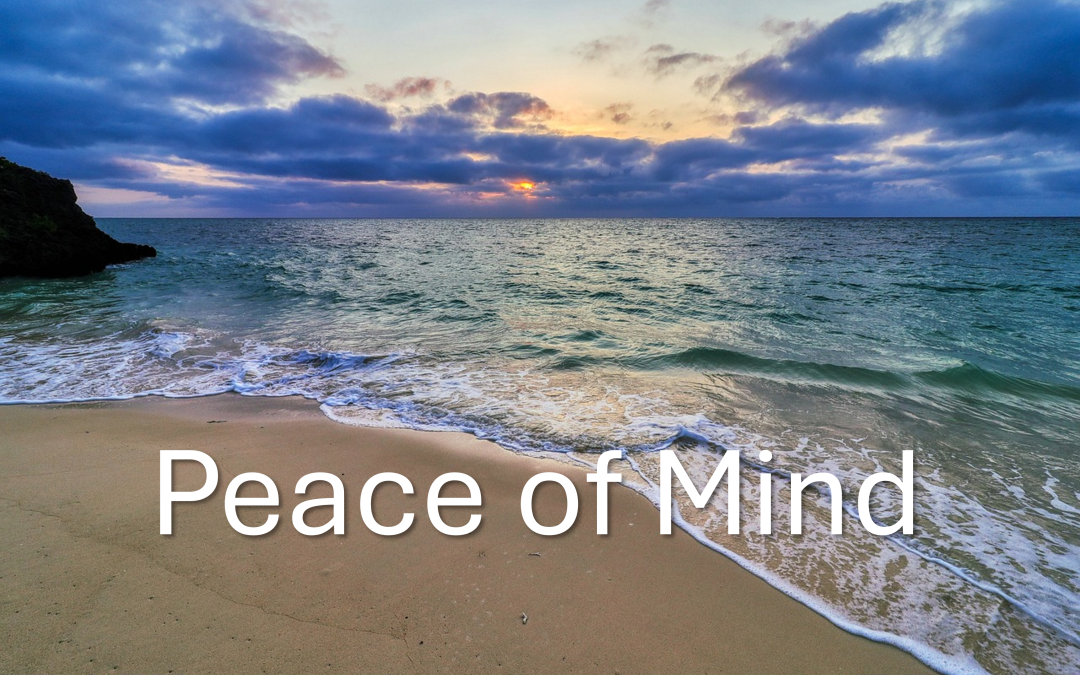Peace of Mind – In today’s fast-paced world, the pursuit of peace of mind has become more vital than ever. With work demands, social commitments, and the constant pressure to stay connected, finding calm in the chaos of daily life can feel elusive. However, with a few mindful practices and changes to your environment, peace of mind is within reach. This article explores several simple strategies to help you regain that inner calm, allowing you to navigate the challenges of modern life with greater ease.
Why Peace of Mind Is Essential in Today’s Fast-Paced World
In our increasingly hectic world, peace of mind is not just a luxury—it’s a necessity. It’s easy to become overwhelmed by a constant stream of information, responsibilities, and distractions. This relentless pace of life leads to increased stress levels, which can have detrimental effects on both mental and physical health. Stress can impair decision-making, reduce productivity, and damage personal relationships.
Achieving peace of mind provides the clarity and focus needed to handle life’s challenges more effectively. When you cultivate peace of mind, you become better equipped to manage stress, maintain emotional balance, and improve overall well-being. By taking proactive steps to prioritize peace, you can mitigate the adverse effects of stress and lead a more fulfilling life.
Mindful Breathing Techniques to Instantly Restore Peace of Mind
One of the most powerful tools to quickly restore peace of mind is mindful breathing. This simple yet effective technique helps calm the nervous system, reduces stress, and refocuses the mind. Breathing exercises can be done anywhere and take only a few minutes to bring about a sense of calm and control.
A popular method is the 4-7-8 breathing technique, where you inhale for four counts, hold your breath for seven, and exhale for eight. This practice slows the heart rate, relaxes the body, and brings a wave of tranquility, making it an excellent tool for moments of high stress or anxiety. Another effective practice is diaphragmatic breathing—breathing deeply from the abdomen rather than the chest, which encourages full oxygen exchange and promotes a state of relaxation.
Regularly incorporating mindful breathing into your day can significantly improve mental clarity and help you manage stressful situations with a calmer, more focused mindset. By making mindful breathing a habit, you can restore peace of mind whenever life’s challenges threaten to overwhelm.
Decluttering Your Space for Mental Clarity and Peace of Mind
Your environment has a significant impact on your mental state. A cluttered, disorganized space can contribute to feelings of chaos and anxiety, making it harder to focus and find peace of mind. On the other hand, an organized and tidy space promotes mental clarity and helps create a sense of calm.
Decluttering doesn’t just mean cleaning up physical messes—it’s also about creating a space that fosters mental well-being. Start by assessing your surroundings and identifying areas that cause stress or distraction. Get rid of unnecessary items, organize essentials, and design a space that feels open and tranquil. Consider incorporating calming elements like soft lighting, greenery, or natural materials that help evoke a sense of peace.
The act of decluttering can also be mentally refreshing. As you clear your physical space, you’re also clearing mental clutter, making room for focus, creativity, and relaxation. By maintaining an organized environment, you can enhance your peace of mind and make your home or workspace a haven of tranquility.
How Nature and Outdoor Time Foster Peace of Mind
Spending time in nature has been scientifically proven to reduce stress and improve mental well-being, making it a powerful tool for cultivating peace of mind. Nature provides a break from the constant stimuli of modern life, offering a calming environment that encourages mindfulness and relaxation.
Whether it’s a walk in the park, a hike in the mountains, or simply sitting in your garden, connecting with nature helps reset the mind. Exposure to natural elements like greenery, fresh air, and sunlight has been linked to lower cortisol levels, reduced anxiety, and improved mood. Even a brief outdoor break can boost your peace of mind, offering a refreshing perspective and the opportunity to step away from daily pressures.
Incorporating regular outdoor time into your routine is a simple yet effective way to recharge mentally and emotionally. Whether it’s a daily walk or a weekend getaway, making time for nature can significantly enhance your sense of calm and improve your overall mental health.
Setting Boundaries to Protect Your Peace of Mind
In a world where we’re always connected and constantly juggling multiple responsibilities, setting boundaries is essential for protecting your peace of mind. Without boundaries, it’s easy to become overextended, leading to burnout and mental exhaustion.
Start by identifying areas where your time and energy are being drained unnecessarily. This could be in the form of work demands that extend beyond business hours, social obligations that you feel pressured to meet, or even the overuse of technology that invades your personal time. Setting clear, intentional boundaries allows you to regain control over your schedule and focus on activities that bring you peace and fulfillment.
Learning to say “no” without guilt and prioritizing self-care is crucial. By protecting your peace of mind, you’re better able to show up for others and handle life’s challenges with resilience and clarity. Boundaries act as a safeguard, ensuring that your time, energy, and mental space are preserved for the things that matter most.
Conclusion
Peace of mind isn’t something that happens by chance—it’s something you can cultivate with mindful practices and intentional choices. By focusing on your mental and physical environment, incorporating breathing techniques, spending time in nature, and setting clear boundaries, you can navigate life’s chaos with a renewed sense of calm. Prioritizing peace of mind is the key to managing stress and living a more balanced, fulfilling life.
Call to Action: Take the first step toward reclaiming your peace of mind today! Incorporate these simple strategies into your daily routine and experience the calm you deserve.

